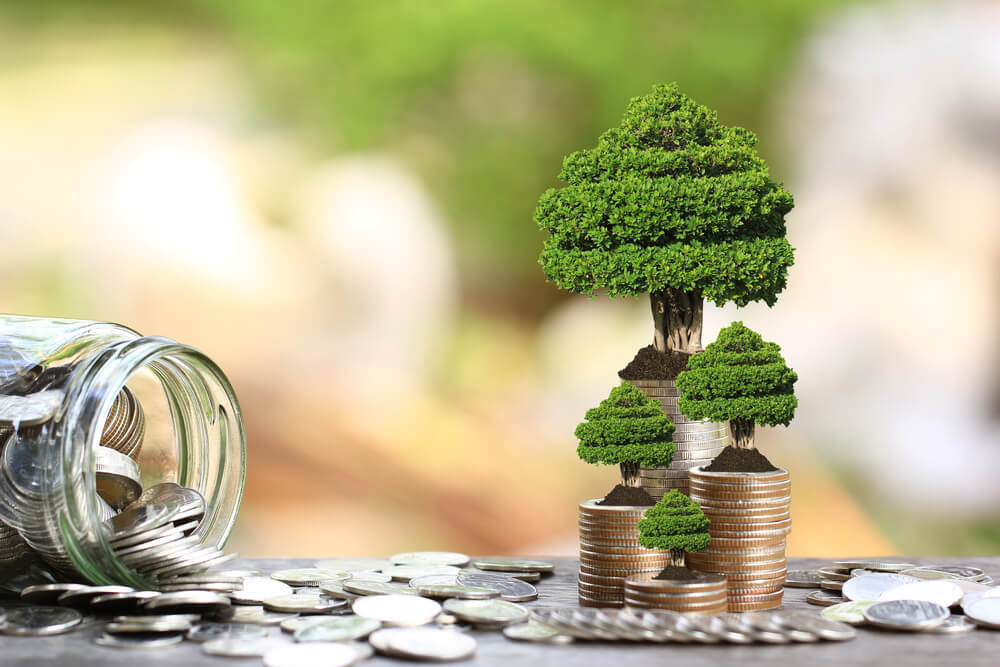The world is facing an unprecedented climate crisis, and urgent action is needed to prevent its worst effects. To accomplish the goals of the Paris Agreement, we need to transition our economies to net zero at an extraordinary speed. This will require significant investments. As estimated by the Intergovernmental Panel on Climate Change, this investment would amount to an additional US $3.5 trillion annually.
A combination of green and transition financing will be essential to support these activities. This includes green financing which supports low or zero-carbon activities or assets such as renewable energy power generation. Transition financing should support activities or assets that are not yet green but could become less polluting with the right efforts and technologies. These activities or assets form the majority of our economies today, and hence it will not be possible to accomplish the Paris Goals without transition financing. DBS, therefore, has a strong focus on transition finance.
One of the key challenges faced in achieving this transition is the need for large-scale investments in infrastructure and technologies that are aligned with sustainability goals. While some of these transition investments may have high upfront costs, they can deliver significant long-term benefits in terms of improved environmental sustainability, increased resilience to climate change, and enhanced economic competitiveness. This is where banks can play a pivotal role as trusted financial intermediaries since they can channel capital towards sustainable projects and bridge the funding gap while rewriting the narrative on the business opportunity behind sustainability.
Another challenge is how to ensure a fair and equitable transition that considers the needs of workers, communities, and consumers. India’s long-term low-carbon development strategy highlights equity and climate justice principles as central to financing the path to net zero by 2070.
As a bank, DBS has been working to accelerate our climate agenda. At the same time, we continue to weave environmental and social considerations into the fabric of our business via our three sustainability pillars: (1) Responsible Banking that seeks to empower clients to being more sustainable, (2) Responsible Business Practices that focus on how we conduct ourselves as an organisation, and (3) Impact Beyond Banking that supports social enterprises and community causes as well as employee volunteerism.
In October 2021, we were the first bank in Singapore to commit to aligning its lending and financing activities with net zero by 2050. In September 2022, we accelerated our climate agenda by publishing a report ‘Our Path to Net Zero – Supporting Asia’s Transition to a Low Carbon Economy’ that outlined how we selected science-based de-carbonisation pathways and set interim 2030 de-carbonisation targets for seven sectors. The targets were developed based on internationally recognised and industry-accepted glide paths such as The International Energy Agency’s Net Zero Emissions by 2050 Scenario. These are among the most comprehensive and ambitious sets of decarbonisation targets among banks globally and we will review them periodically.
In 2022, DBS achieved a combined total of SGD 480 million in transition financing through use-of-proceeds transition loans and transition-focused sustainability-linked loans.
A notable example is our support to India’s push to double its ethanol distillation capacity and blend 20% of ethanol in petrol by 2025. DBS was the first foreign bank in India to provide a transition loan of INR 1,750 million to Shree Renuka Sugars Limited, a subsidiary of Wilmar International Limited (Wilmar), one of India’s largest sugar and green energy producers. The loan was deployed to expand the company’s sustainable bioethanol business and is part of Wilmar’s overall decarbonisation strategy. Shree Renuka Sugars has also been part of a partnership supporting sugarcane outgrowers to adopt sustainable and climate-smart sugarcane farming since 2017.

Chief Sustainability Officer,
DBS Bank
Collaboration between the private sector, governments, and civil society is necessary to achieve a resilient future.
At DBS, we actively explore partnerships for ecosystem change to accelerate the transition to net zero. We have partnered with the Singapore Exchange, Standard Chartered and Temasek to set up Climate Impact X (CIX) – a global exchange and marketplace for the trading of high-quality carbon credits. We have also partnered with SustaintechX and notable regional forums & working groups including WBCSD, Industry Advisory Panel (IAP), China Green Finance Committee (GFC), Green Finance Industry Taskforce (GFIT) and Sustainability Reporting Advisory Committee (SRAC).
Finally, the need for transition financing has never been greater, and at the same time, the future of transition financing has never been more promising. Today, sustainable investments can create new revenue streams, improve brand reputation, and attract new investors for businesses, while also helping to create jobs, improve public health, and mitigate the impact of climate change. Banks have one of the most critical roles to play, and at DBS, we are proud to work together with our customers, stakeholders, and industry peers to create a win-win solution for businesses and society at large.



